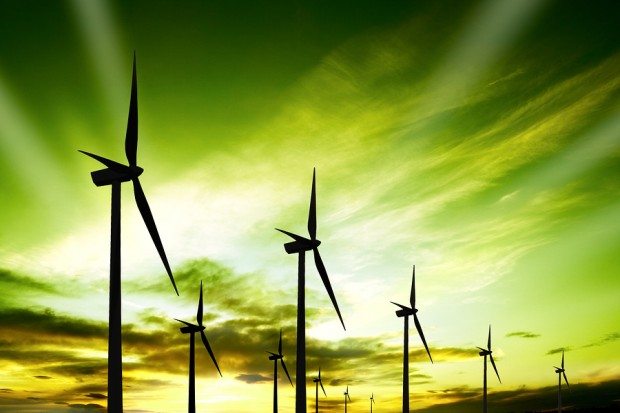The world will see a sharp drop in the number of new wind turbines installed this year after record growth in 2012, a report by the Global Wind Energy Council (GWEC) said.
It predicted a strong recovery in 2014 but also cited risks to investment, chiefly policy uncertainty.
“Wind power may be variable, but the greatest threat to the continued stable growth of the industry is the variability and unpredictability of the politicians who set the frameworks for the energy sector,” Steve Sawyer, GWEC Secretary General, said at the Brussels launch of the report.
The report forecast annual installations for 2013 will drop by more than 11 percent to just under 40 gigawatts and then recover sharply in 2014 and beyond, with global capacity growing at an average rate of more than 11 percent from 2014 and 2017.
In 2012, record installations in the United States and Europe increased the global wind power market by more than 10 percent from the previous year.
GWEC said uncertain federal policies in the United States had caused a “boom-bust” cycle in wind energy development for more than a decade and it foresaw another boom.
In the European Union, by contrast, it would be hard to repeat the 2012 surge as investors worry about policy direction.
The EU Emissions Trading Scheme, meant to be the prime driver of low-carbon investment, has collapsed to record lows this week after the European Parliament rejected a plan to boost prices.
The European Commission, the EU executive, is still working on a solution and has also outlined proposals for 2030 policy to follow on from 2020 green energy targets.
“An ambitious and binding 2030 renewable energy target would hugely reduce uncertainty,” said Thomas Becker, CEO of the European Wind Energy Association, without specifying a level.
He said it was important for politicians and institutions such as the EU investment arm, the European Investment Bank, to hold their nerve and back support schemes to embolden investors.
“It is extremely important to pension funds and others that think about investing in wind that they feel that the political community is firm in wanting this industry to grow,” he told Reuters.
He said it was a question of relatively minor amounts, which had great leverage and paled into insignificance by comparison with fossil fuel subsidies.
The Paris-based International Energy Agency’s 2012 World Energy Outlook said fossil fuel subsidies were six times higher than subsidies to renewables.
(Reporting by Barbara Lewis; Editing by Anthony Barker)





















 Winter Storm Fern to Cost $4B to $6.7B in Insured Losses: KCC, Verisk
Winter Storm Fern to Cost $4B to $6.7B in Insured Losses: KCC, Verisk  Modern Underwriting Technology: Decisive Steps to Successful Implementation
Modern Underwriting Technology: Decisive Steps to Successful Implementation  RLI Inks 30th Straight Full-Year Underwriting Profit
RLI Inks 30th Straight Full-Year Underwriting Profit  Earnings Wrap: With AI-First Mindset, ‘Sky Is the Limit’ at The Hartford
Earnings Wrap: With AI-First Mindset, ‘Sky Is the Limit’ at The Hartford 